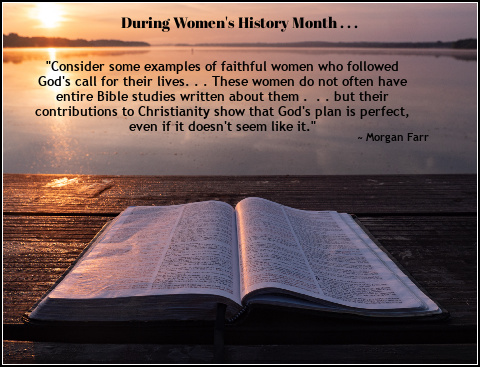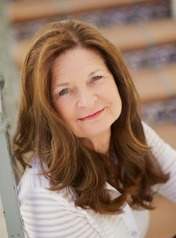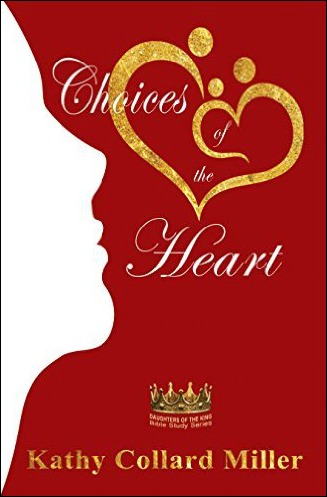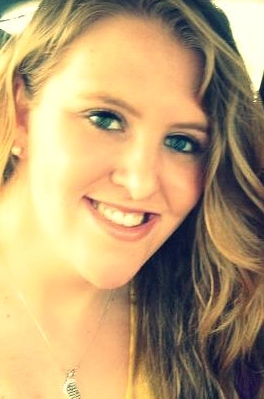Celebrate Well-Behaved Women Making History!
Morgan Farr is a woman of strength and wisdom. I always enjoy her unique insights. In this Biblical Womanhood UPGRADE during Women's History Month, she points to women in biblical history who have made a difference. "Did you know," Morgan says, "that one of the most famous women’s empowerment quotes is actually a twisting of praise for Christian women?"
"Did you know," Morgan says, "that one of the most famous women’s empowerment quotes is actually a twisting of praise for Christian women?"
That question certainly piqued my (Dawn's) interest!
Morgan continues . . .
We are in the middle of the month of March, which means that if you hop onto any social media platform you will likely be bombarded with the celebration of women from across the globe. It's Women’s History Month.
Quotes from famous women, quotes about world-changing women, and quotes celebrating women are flying across social media at the moment.
But one in particular stands out to me:
“Well-behaved women seldom make history.”
We see this quote on pins, stickers, and water bottles. It is often used as a sort of rallying cry for women to behave badly, which is a bit ironic, given the source.
This quote actually came from an academic paper published by Laurel Thatcher Ulrich. She was talking about the funeral sermons of Christian women.
I want to share how to upgrade your walk with well-behaved women who made history.
The idea behind Ulrich’s quote is that the women who live quiet lives tend to be overlooked by history, not that women should be poorly-behaved in order to make history.
At first, we want to react against this, but even in the Christian culture, it is the women who stepped out of line that are most often remembered.
In preparation for this article, I did a social media poll and asked my followers to name five women in the Bible.
These were the names I got and who they are:
- Eve ate the fruit from the forbidden tree (Genesis 3:6).
- Sarah laughs at the idea that she would get pregnant in her old age (Genesis 18:10-15).
- Rahab was a prostitute (Joshua 2:1).
- Bathesheba was married when she was taken by King David, who then murdered her husband (2 Samuel 11:2-17).
- Mary was pregnant out of wedlock (Luke 1:26-35).
- Ruth bucked tradition by following her mother-in-law (Ruth 1:8-22).
- Esther challenged a king (Esther 4:1-14; 5:1-8; 7:1-10; 8:1-16).
All of these women stand out in some way because of their stories.
Initially I was going to use the word salacious or maybe scandalous stories, but really, these women just had big stories. They are the major names that people think of with the term “women in the Bible.''
After that things start to get a little fuzzy and people really have to stretch for the names of other women.
Understanding Bible history and how women interact with it matters.
I find that knowing the Bible helps me in my everyday walk with Christ. Being a constant student of the Word is a crucial aspect of our faith. We are told in Ecclesiastes 1:9 that there is nothing new under the sun. If I am struggling with something in my life, looking to the Bible can help me see next steps and to make decisions.
Consider some examples of faithful women who followed God’s call for their lives, even with the threat of death.
These women do not often have entire Bible studies written about them unlike many of the women listed above, but their contributions to Christianity show that God’s plan is perfect, even if it doesn’t seem like it.
1. Shiphrah and Puah
These ladies were midwives who bravely stood up to Pharaoh when he ordered the murder of children (Exodus 1:15-21).
2. Deborah
She was a prophet and a judge who led Israel with honor and integrity when she stepped into a leadership vacuum (Judges 4:4-24; 5:1-31).
3. Priscilla
She was a tentmaker who traveled with her husband to share the gospel and invited Paul into her home (Acts 18:1-3, 18-19, 26).
4. Lydia
Lydia was a gentile woman. She was at a prayer gathering when Paul and Timothy came to preach, and she converted to Christianity. She led her family to Christ and used her wealth as a textile merchant to support the early church (Acts 16:12-15, 40).
5. Joanna
She followed Jesus after He healed her, she supported the apostles, stayed with Jesus when crowds turned against him, stayed during the crucifixion, and went to the tomb where she was one of the first to learn of Jesus’ resurrection (Luke 8:1-3; 23:49, 55-56; and 24:1-10).
What can we learn from these ladies?
- When a boss asks you to do something that goes against your scruples? Shiphrah and Puah.
- When you want to be involved in the church but you don’t know how? Take a note from Priscilla and open your home.
- Does your church support missions? Lydia would tell you to give generously.
Of course, none of this is to say that we as women cannot learn from men in the Bible, or that men can’t learn from women in the Bible. But when my four-year-old daughter asked why the stories in her children’s Bible are mostly about boys, I am now able to tell her of the women who have made a difference in our faith—women she can look up to, women she can follow as they followed God.
For all of the women we listed today, there are thousands, millions even, who faithfully lived out the call that God had for their lives without ever having their name recorded.
It can be easy in the drudgery of everyday life to wonder if your life has meaning, if you are making a difference.
Remember:
When you are loving God with all your heart, soul, mind, and strength while loving your neighbor as yourself, you are working for the Lord.
Your daily walk with Him matters.
In this month of celebrating women’s history, we celebrate the well-behaved women who are making history today.
What woman in your history made a difference in your life?
 Morgan Farr is a succulent-cultivating, book nerd, aspiring author. She spends her days homeschooling her four young children and training her working dogs. As an Army wife, Morgan has learned to lean heavily on Jesus as she walks out military life. She is the Director fo Publishing at Planting Roots, a minitry for military women and wives. You can connect with Morgan on all major social media channels using her handle: morgandfarr.
Morgan Farr is a succulent-cultivating, book nerd, aspiring author. She spends her days homeschooling her four young children and training her working dogs. As an Army wife, Morgan has learned to lean heavily on Jesus as she walks out military life. She is the Director fo Publishing at Planting Roots, a minitry for military women and wives. You can connect with Morgan on all major social media channels using her handle: morgandfarr.
Graphic adapted, courtesy of Aaron Burden at Unsplash.
 Post a Comment → Posted on
Post a Comment → Posted on  Wednesday, March 15, 2023 at 10:45AM
Wednesday, March 15, 2023 at 10:45AM  Biblical Womanhood,
Biblical Womanhood,  Morgan Farr,
Morgan Farr,  Upgrade with Dawn,
Upgrade with Dawn,  Women in the Bible,
Women in the Bible,  Women's History Month Upgrade Your Life
Women's History Month Upgrade Your Life  Biblical Womanhood,
Biblical Womanhood,  Character,
Character,  Woman's Worth
Woman's Worth 









